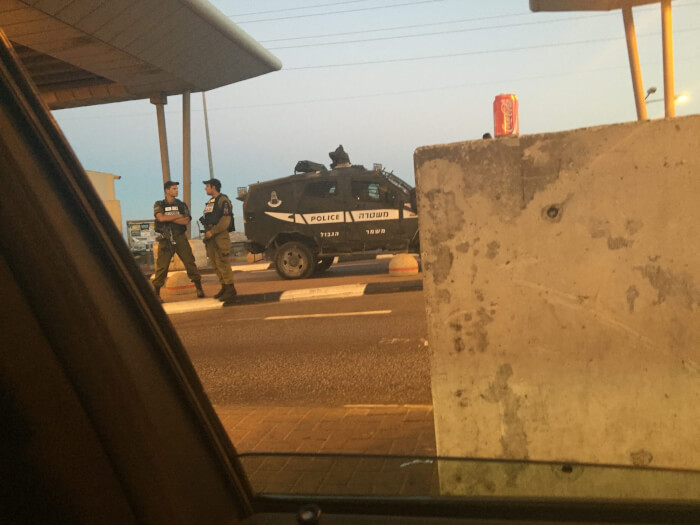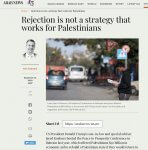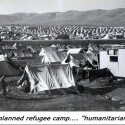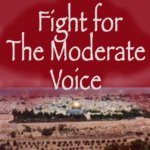APO Spirit at the Big Fat Kurdish Wedding!
By Abdennour Toumi
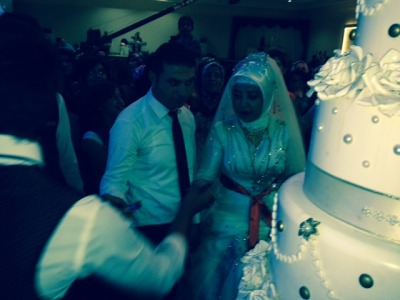
Derbassiya, Turkey — Here in Turkey Kurdistan is very dear to the hearts and minds of Kurds across the region, including Mesopotamia and other historical places, and I wonder if any people have occupied such a unique position before. Certainly Kurdistan is very dear in the eyes of Kurds living in this country.
I find the Kurds an excellent model for people that have preserved their culture and traditions throughout history. The Kurdish wedding is no doubt one of these traditions that has been preserved for a long time and is still practiced at different socio-economic levels more or less in keeping with their traditions.
According to a friend of mind, Mehmet, a Turkish-Kurdish gentleman and still a bachelor, the average Kurdish wedding costs around 60.000TL ($35,000). Certainly the Kurdish groom always offers the bride an armful and belt of gold! What is really characteristic about this event is how the wedding turns into a festive, political rally.
For a big party, both families invite their relatives and close friends to a privately-owned ballroom, where traditional Kurdish music is played, usually accompanied by singing traditional songs and dancing the local dance style (Debka). Debka is a popular, Middle Eastern rhythmic dance, a big circle formed by men and women dancing together, little fingers linked, then a simple three steps to the front and three steps back. Including other special traditional dances makes the occasion even more exciting!
I have to say that most Kurds make an effort at dancing the Debka and other traditional dances, or at least know something of the basics. This made an outsider like myself extremely impressed and excited to join the circle and shake my shoulders like the rest!
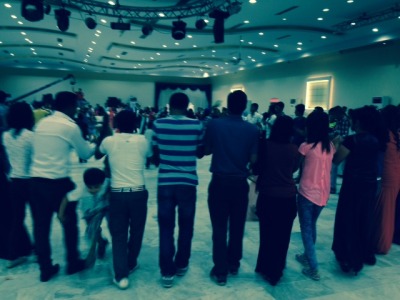
For most of the Kurds in Turkey wedding parties are mixed, the bride and groom sitting together on a special love seat in an upper corner, watching their families and friends of both genders dancing around them and drinking soda ad tea.
At the ceremony the groom enters to give his bride the wedding ring, golden presents and to view the wedding cake. Just before, he has received a Napoleon gold coin from either a friend or family member as a special present for the couple. On this occasion I was asked to do it.
The groom’s father, his brothers and close relatives join the groom on the bride’s side of the ballroom and dance with him, lifting him on their shoulders. Then as they dance around the couple, the women catch the bride’s ear and chant the youyous, waiting with the groom for some slow dance music. The bride wears a long, full, reddish-beige silky dress, her hair bejeweled and styled in a classic profile of a dignified woman. As the music played, the couple began a romantic slow dance, Western-style.
Later, Kurdish lyrics and contemporary songs filled the ballroom and excited the guests even more. Speaking of lyrics, I have to say that this was one of the most unique weddings I ever attended, characterized by unique word and phrases which I asked my friend to translate for me.
Some people, other than Arab or Turk, might feel uncomfortable as Kurdish people still sing their melancholy songs of sociopolitical suffering; songs of broken hearts, brotherhood, fighting for rights, including their history of fighting for the Turks — one flag, one country, one people –“Bir Birak, Tak Dawlet,” a song popularized by Şivan Perver, a famous Kurdish singer living in the U.K.
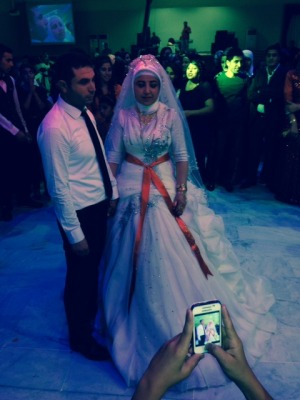
The vocalist for the band also sang songs abut Kurdistan, homeland to all Kurds, different cities in Grand Kurdistan, and the honor of PKK and Abdullah Ŏçalan, its leader and “uncle” of all Kurds–guests danced to the song for APO, “our leader and our guide, we will follow and die for your road, dancing with the PYD (the political branch of the PKK) flag.”
Abdullah Ŏçalan is also known as APO (short for Abdullah and “uncle” in Kurdish), and is a founding member of the Kurdistan Worker’s Party (PKK), a military organization formed in 1978 in Turkey and listed as a terrorist organization internationally by some states and organizations, including NATO, the United States and the European Union.
Ŏçalan was arrested in 1999 by Turkish security forces in Naïrobi with the help of the Mossad and taken to Turkey where he faces a life-time sentence serving in the Marmara island prison.
I did not wait for the “henna” completing the ceremony, as the party finally began to break up. This took some time because nobody wanted to say goodbye, but I am sure there will be other weddings ahead. So, see you there (Te bibnîm de xweşiye de)!
More photos:
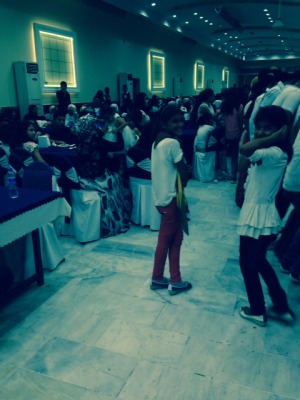
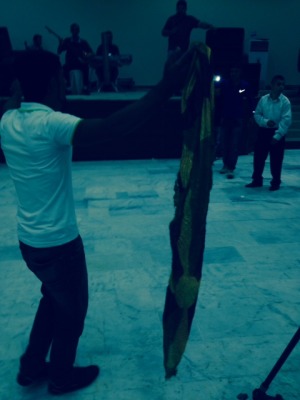
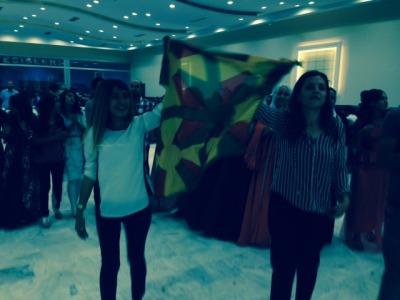
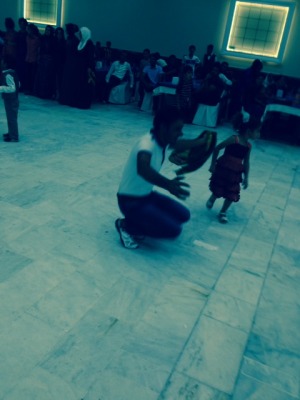
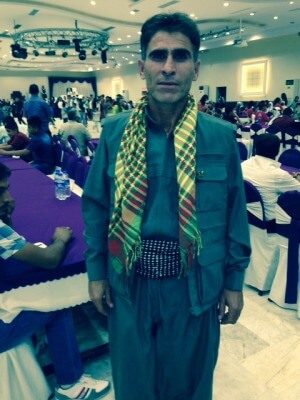
(Abdennour Toumi is the Paris, France based correspondent for The Arab Daily News www.TheArabDailyNews.com. Reach him at nourhty@gmail.com.)
Related articles


- The Israeli-Palestinian Conflict: Is the Neither-Peace-nor-Security As-sumption Dominating Again? - June 7, 2021
- Algeria: “I Can See Clearly Now” - August 5, 2019
- Majesty Mohammed VI and General Gaïd Salah Tear Down This Wall! - July 29, 2019
















 Kurdistan: The One-State Solution For Regional Stability In Middle East – OpEd
Kurdistan: The One-State Solution For Regional Stability In Middle East – OpEd


